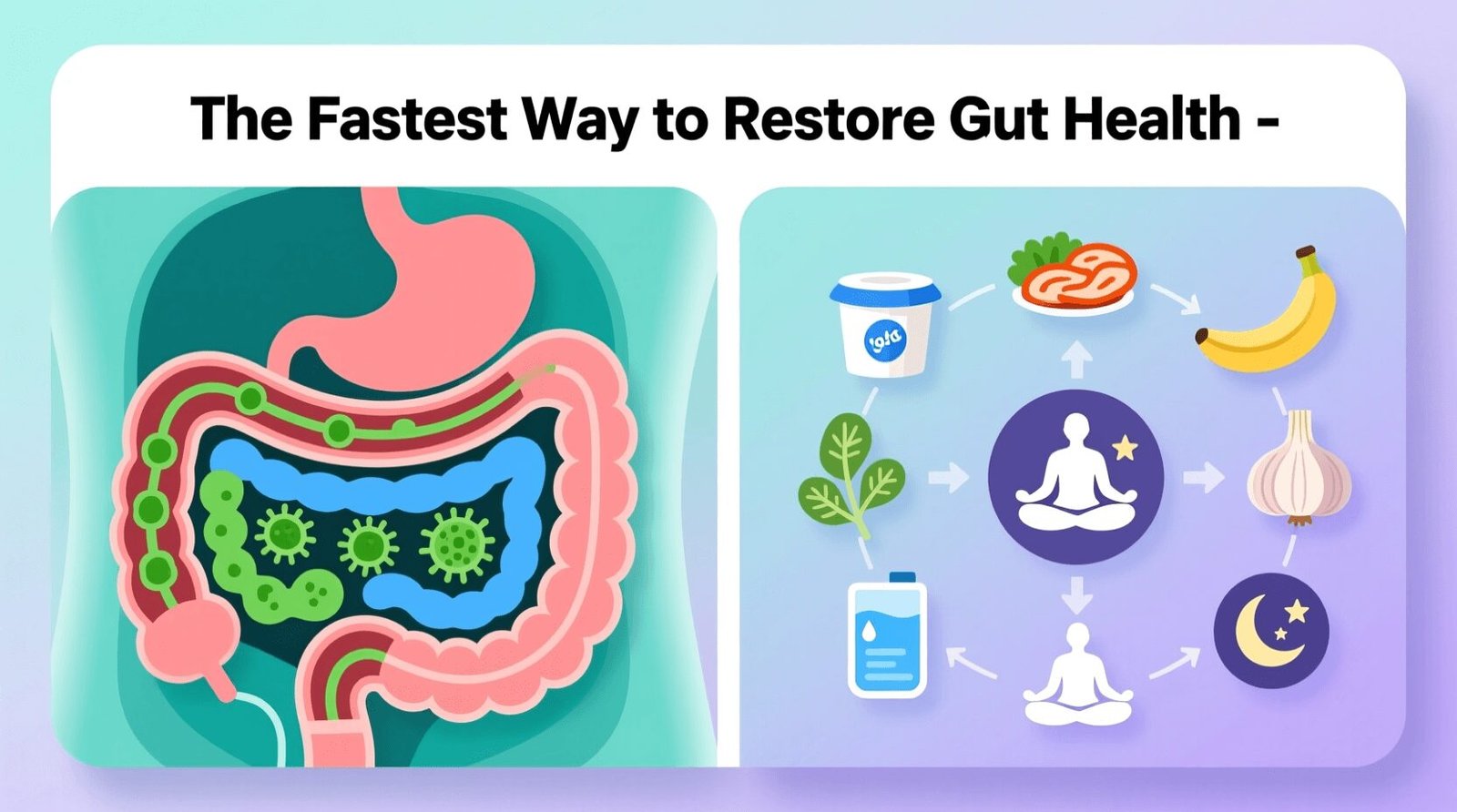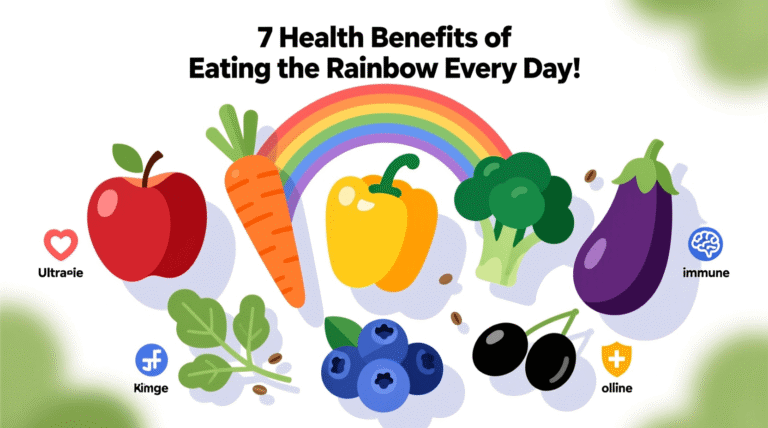What is the Fastest Way to Restore Gut Health?
Have you ever felt like your gut is a trouble-maker? Bloating, irregular digestion, low energy—sound familiar? If so, you’re not alone. Your gut is like the engine room of your body—it quietly works hard, and when it’s out of tune, everything else feels off. The good news: with the right approach, you can restore your gut health faster than you might think. And if you’re searching for Gut Health Treatment Honolulu, you’ll find this article especially relevant to your journey.
Below, let’s dive into a roadmap to get your gut back on track—think of it as a “spring clean” for your digestive system. We’ll discuss practical steps, what to avoid, and how to keep the momentum going. Let’s get started!
1. Understanding Gut Health: Why It Matters
Your gut isn’t just where food goes; it’s a complex ecosystem. It involves digestion, absorption, immune function, and yes—even your mood. Think of it like the soil in a garden: if it’s fertile and healthy, plants grow strong; if it’s poor and depleted, everything else struggles.
A healthy gut means your system can efficiently process food, absorb nutrients, and keep the microbial community in balance. When this engine falters, you might feel tired, bloated, or even foggy—little issues first, big ones later.
2. Signs Your Gut Needs Help
How do you know when your gut is crying out for support? Some common red flags:
- Persistent bloating, gas or discomfort after meals
- Irregular bowel movements (constipation or loose stools)
- Food intolerances or sensitivity to certain foods
- Constant fatigue, brain fog, mood swings
- Frequent infections, weakened immunity
If you recognise a few of these, your gut might be telling you it’s time for a reset.
3. The Role of Diet: What to Eat and What to Skip
Diet is the fastest lever you have for restoring gut health. Here’s how to use it:
Eat more of:
- Whole foods: vegetables, fruits, legumes, whole grains
- High-quality protein: fish, lean meats, beans
- Healthy fats: olive oil, avocado, nuts, seeds
- Fermented foods: yogurt, kefir, sauerkraut, kimchi
Reduce or avoid: - Processed foods with lots of sugar, refined grains, additives
- Excessive alcohol, heavy caffeine — they irritate the gut lining
- Overly spicy or fried foods if you already feel sensitive
By giving your gut clean fuel, you’re setting the stage for recovery.
4. Microbiome Boosters: Probiotics, Prebiotics & Fermented Foods
Your gut is home to trillions of microbes. Imagine them as your personal internal workforce. To support them:
- Prebiotics feed them: think garlic, onions, leeks, asparagus, oats
- Probiotics introduce friendly ones: yogurt, kefir, kombucha
- Fermented foods enrich diversity and vitality
These help rebuild a balanced microbiome, which means fewer bad actors (pathogens) and more good ones.
5. Lifestyle Levers: Sleep, Movement & Stress
Your gut doesn’t work in isolation—it’s tightly connected to your overall lifestyle.
- Sleep: Poor sleep weakens digestion and increases gut inflammation.
- Movement: Light-to-moderate exercise helps stimulate digestion and circulation.
- Stress: High stress sends your gut into fight-or-flight mode, slowing digestion and altering the microbial balance.
Addressing these lifestyle factors is like fixing the foundation of a house—without it, the fancy stuff (diet, supplements) won’t hold.
6. Gut-Friendly Habits: Hydration, Fiber & Chewing
Small habits add up:
- Hydration: Clean water keeps things moving smoothly through your gut.
- Fiber: Both soluble and insoluble types act like a broom and broomstick—helping sweep the system clean and maintain gut microbes.
- Proper chewing and mindful eating: Slow down, chew thoroughly—imagine your digestive system as a factory that needs well-prepared raw material.
Together, these habits optimize the environment for gut recovery.
7. Detoxing & Resetting: When to Hit the “Pause” Button
Sometimes we overload the gut—too many processed foods, too much stress, too little sleep. It’s like a factory working overtime without maintenance. A reset might include:
- Elimination diet: Temporarily remove common irritants (gluten, dairy, high sugar) and gradually reintroduce.
- Short-term fasting or mindful eating windows: Let your gut get a break.
- Simplified nutrition for a week: Gentle foods like steamed vegetables, lean protein, bone broth.
This gives your gut toilet time to clear debris and rebuild. Some clinics offering Gut Health Treatment Honolulu use structured “reset” plans.
8. Building Long-Term Gut Resilience: Maintenance Mode
Restoration is one thing; keeping it that way is another. Once you’ve got your gut humming, think maintenance:
- Rotate foods to avoid boredom and microbial stagnation
- Keep fermented and fibre-rich foods as staples
- Monitor your stress and sleep patterns like you’d check your car’s oil
- Stay alert to new discomforts; small changes early prevent bigger ones later
Think of this like building “gut fitness”—you don’t want to reach peak then fall off.
9. Quick Wins You Can Do This Week
Want to get going quickly? Here are some fast wins:
- Swap processed breakfast cereals for oatmeal + berries
- Add a fermented vegetable or yogurt to lunch
- Go to bed 30 minutes earlier than usual
- Drink an extra 500 ml of water each day
- Take a 10-minute walk after dinner to support digestion
These small wins add up and build momentum.
10. Avoiding Common Pitfalls: Mistakes That Slow You Down
Watch out for these speed-bumps:
- Jumping into fad “gut cleanses” without professional guidance
- Overdoing probiotics or relying solely on pills instead of real food
- Ignoring sleep/stress while focusing only on diet (foundation matters)
- Expecting overnight miracles—gut restoration takes time
Avoiding these mistakes keeps you moving forward, not stuck.
11. Analogy: Your Gut as a Garden to Cultivate
Let’s use a metaphor: Your gut is like a garden.
- The soil = your gut lining and microbiome
- The seeds = the good bacteria you plant via fermented foods and probiotics
- The weeds = processed foods, stress, poor sleep
- The water and sunlight = hydration, fibre, movement, and rest
If you treat your gut-garden well, you’ll yield vibrant health. But ignore it, and weeds take over, choking the growth. This mental picture can help you stay motivated—gardens take care, but they reward you richly.
Conclusion:
Restoring gut health isn’t rocket science—but it does require consistent care. Think of it like restoring a vintage motorbike: you wouldn’t just polish the paint and say you’re done—you’d fix the engine, change the oil, clean the filters, and then keep up regular maintenance. Similarly, use the tools above—diet, lifestyle, professional support—and you can see meaningful change. And if you’re in Honolulu or seeking specialized care, remember that the term “Gut Health Treatment Honolulu” signals you’re thinking not just about quick fixes but about real, sustainable recovery. You’ve got this—today is your first step.
FAQs
Q1: How long does it typically take to restore gut health?
It depends on how far off the balance is—but many people begin to feel better within 2-4 weeks of consistent diet and lifestyle changes. Full restoration may take 3-6 months, especially if there were serious issues.
Q2: Are probiotics enough on their own to fix gut issues?
No—while probiotics are helpful, they’re just one piece of the puzzle. Without good diet, sleep, movement and stress management, probiotics alone often won’t get you to full restoration.
Q3: What does a “gut reset” diet look like?
A gut reset diet focuses on whole, minimally processed foods; removes common irritants (e.g., gluten, dairy, high sugar) temporarily; includes fiber and fermented foods; and is paired with hydration and light activity.
Q4: When should I seek a specialist for gut health?
If you experience persistent digestive discomfort, unexplained weight loss, blood in stools, severe pain, or you’ve tried improving lifestyle and feel stuck—seek a gastroenterologist or functional medicine practitioner. In Honolulu there are clinics offering specialised gut health treatment.
Q5: Can stress really affect my gut that much?
Absolutely. The gut and brain are tightly connected via the gut-brain axis. Chronic stress can slow digestion, upset the microbiome, and trigger inflammation—so managing stress is a crucial part of any gut health plan.







